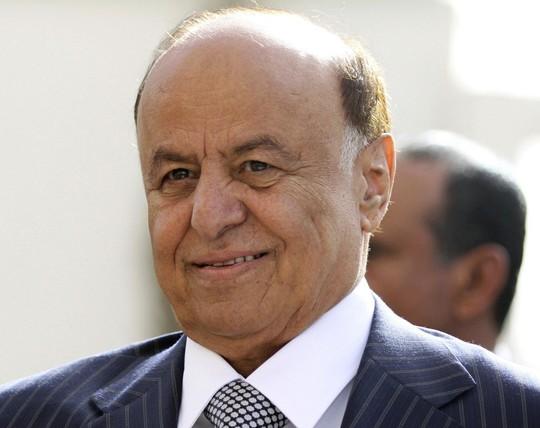 President Mansour Hadi of Yemen President Mansour Hadi of Yemen President Mansour Hadi of Yemen has agreed to a 72 hour ceasefire in the Yemen civil war. He also said the ceasefire could be extended under certain conditions. The announcement was made by Foreign Minister Abdel-Malek al-Mekhtafi on his official Facebook account:"The President agreed to a 72 hrs ceasefire to be extended if the other party adheres to it, activates the DCC (De-escalation and Coordination Committee) and lifts the siege of Taiz," The DCC is a UN-backed military commission that monitors ceasefires in Yemen. A start date for the truce has not been announced but Hadi is to meet with Ismail Cheikh Ahmed, the UN special envoy to Yemen, on Thursday to set a date. Hadi's government has been asking that there be humanitarian access to the city of Taiz. The rebel Houthis largely encircle the city with government forces having control of only one of four access routes. The Houthis took the capital, Sanaa, back in 2014 with the help of forces loyal to the former president Ali Abdullah Saleh. Although the Houthis have lost much of the south including the port of Aden, they hold most of the north and areas along the Red Sea coast. Previous ceasefires have failed. Saudi Foreign Minister al-Jubeir said the Saudis would accept the ceasefire if the Houthis agreed to it. So far there has been no response from the Houthis. Saudi-led airstrikes have been part of the campaign against the Houthis since March of last year. Several Gulf country allies have deployed troops to Yemen. The conflict has created a humanitarian disaster with an estimated 10,000 people having been killed, 3,800 of them being civilians according to UN estimates. The United States Britain, and the UN have urged both parties to declare a ceasefire. US Secretary of State, John Kerry, said in London Sunday: “This is the time to implement a ceasefire unconditionally and then move to the negotiating table. We cannot emphasize enough today the urgency of ending the violence in Yemen.” The Saudi-led coalition was recently found responsible for bombing a funeral that killed over a hundred people. At first, the Saudis denied making the strike but now are claiming it was based on false information.
0 Comments
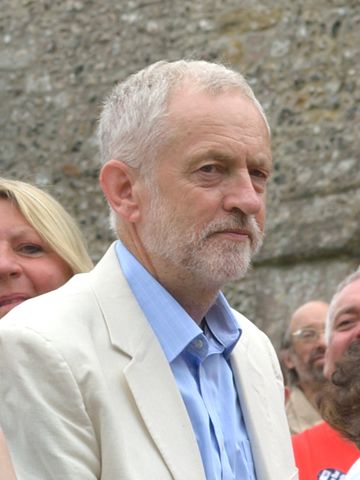 Jeremy Corbyn leader of the UK Labor Party Jeremy Corbyn leader of the UK Labor Party The number of strikes in the UK reached an all-time low last year, the lowest number of workers on strike since records began. No doubt many will celebrate this as a sign that capital and labor are successful partners in the UK. However, what it shows is that labor is weak and sees itself as unable to win any benefits through strikes. The contrast of the present with the past is striking. in 2015, 170,000 days were lost to strikes. In 1979 there were 29.5 million days lost. Employees perceive themselves as powerless to counter continuing impositions on them. Some companies require workers to meet management performance targets and are constantly monitored. The domination of labor by capital has come about through the weakening of workers' power in the market place. Unions have been unable to bid up the price of labor. Indeed a recent Trades Union Congress report indicates that in the UK wages in the UK have fallen further since 2007 of all 28 OECD countries with the one exception of Greece. The report shows that real earnings have dropped more than 10% since 2007. Data from a recent OECD employment outlook shows that from 2007 to 2015 real wages grew in Poland by 23 percent, in Germany by 14 per cent and in France by 11 percent. Average over the OECD countries was 6.7. There are a number of reasons that UK unions have not been able to increase wages in the UK. One reason is that there have been increasing restrictions on the right to strike. The new Trade Union Act was introduced by Conservative governments in the 1980s and 90s but Labour governments from 1997 to 2o10 failed to reverse the legislation. An even more important factor is that unions are representing a declining portion of an expanding labor market. In the private sector union membership is only 14 percent and overall is just 25 percent. The perceived weakness of unions makes recruiting new members difficult. Union members themselves fear loss of their jobs and the power of management against them should they try to assert themselves. There are exceptions such as some working on the railways but they are rare. Jeremy Corbyn's plan to introduce statutory bargaining rights can help out workers, but workers must again realize that withdrawing their labor is still a key to ensuring that they gain better wages and benefits.
An earlier ceasefire announced by the UN failed when the Saudis claimed they were not bound by it and began bombing again just hours after the cease fire was to take effect. It remains to be seen if the Houthis and their supporters honour this declaration.
The months of bombing and clashes has created a humanitarian disaster for Yemenis. Many have tried to flee battle zones or the country. Others are facing diminishing supplies of vital necessities and an overburdened medical system. More than 3,200 have been killed since the fighting began. An estimated 13 million are in need of food and other aid. The Saudi bombing strikes sometimes target residential areas. In a recent attack in the central city of Taiz medical sources report that 80 people were killed and another 150 other wounded. Al Qaeda in the Arab Peninsula(AQAP) has taken advantage of the conflict and chaos to control more territory, often with support from local Sunni tribes resisting the Houthi advance. The Islamic State has also shown its presence in Yemen by devastating suicide attacks in the capital and elsewhere. 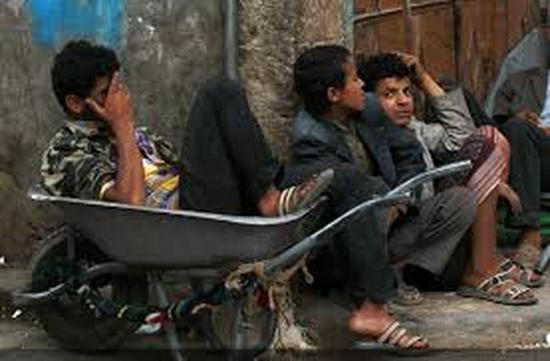 Even though many areas are free from bombing the blockade has led to shortages of everything. Meanwhile, the government-in-exile is safe away from it all in Ryadh, Saudi Arabia. One historic site has been hit and a UN compound also bombed injuring a guard and causing considerable damage. Some residential areas containing homes of relatives of former president Saleh who supports the Houthis have been bombed killing civilians. Rebel Houthi leader Zeifullah al-Shami told the Associated Press that the Hadi conditions were unacceptable and they do not address the country's humanitarian crisis. Perhaps, the Saudis will force Hadi to accept a cease fire without his conditions. Otherwise, the slaughter will continue. Al-Shami noted that talks sponsored by the UN were still ongoing in the capital Sanaa. A pro-Houthi activist said: "Those conditions are actually silly from the so-called President Hadi government. Those are the same conditions that were presented at Geneva talks and now here again.I know Houthi won’t accept any condition for withdrawal and there cannot be any precondition for ceasefire." The problem is that a UN resolution has been passed that demands that the Houthis withdraw from the areas that they have taken and lay down their arms. The power brokers that tell the UN what to do thought that they could just pass this resolution and run some bombing missions and the Houthis would fold. Now they are stuck with a hopeless client who will never get back into power and a resolution that stands in the way of any sort of rational agreement with the Houthis. Given the ability of the powerful to be inconsistent and hypocritical when it suits them the Saudis, the Gulf Cooperation Council, and the US may decide to more or less ignore the UN resolution. After all, countries such as Israel regularly ignore UN resolutions and no one pays much attention. If the parties want to help solve the humanitarian crisis which their actions have produced, they should agree to a ceasefire without setting conditions that would block a successful agreement. A Houthi activist Bukhaiti claimed that "the main source of the humanitarian crisis is the blockade by the Saudi-led coalition. He said that about 90 percent of aid is lying in Djibouti and the Saudis are not letting it enter Yemen." Since March estimates are that more than 3,000 people have been killed. AQAP has gained control of considerable territory including Mukalla the capital of Hadrahmut province. In the south local militia fighting against the Houthis are from the Southern Movement that wants an independent South Yemen or at least more autonomy. Direct support for Hadi is minimal. The Houthis have always wanted to be key players in forming a government but realize that they themselves as a Shia minority in a predominantly Sunni Yemen cannot rule by themselves. They could not have captured the territory they have without the support of ex-president Saleh and those loyal to him within the Yemeni army. Iran, which supports the Houthis, realizes this as well. It would like a political solution with a government that would give more power to the Houthis but composed of many different groups. If the Saudis and other Gulf States were willing to allow the Yemenis somewhat more independence a unity government might be possible. A unity government could deal with the increasing power not only of AQAP in Yemen but the Islamic State as well. It is in the interests of all the other parties to combine against this extremist threat and to end the disastrous civil conflict. If the Hadi government-in-exile refuses to cooperate the Saudis and other supporters should inform them that they will not receive any support. Sources: AlJazeera Business Insider Almanar Press TV
"UN Emergency Relief Coordinator Stephen O'Brien described the situation confronting the population of the Arab world’s poorest country as “catastrophic,” placing much of the blame on the Saudi-led air strikes that have devastated Yemeni cities, and Saudi Arabia’s blockade of Yemen’s ports, which have prevented not only the arrival of emergency relief supplies but also the basic flow of goods that existed before the war.
“The blockade means it’s impossible to bring anything into the country,” Nuha Abdul Jaber, Oxfam’s humanitarian program director in the Yemeni capital of Sanaa told the Guardian newspaper. “There are lots of ships, with basic things like flour, that are not allowed to approach. The situation is deteriorating, hospitals are now shutting down, without diesel. People are dying of simple diseases. It is becoming almost impossible to survive.” Earlier attempts at peace talks failed when the Hadi government in exile demanded concessions from the Houthi rebels as a condition of attending. This time, there are no preconditions. Dahllallah a-Shami, a senior member of the political wing of the Houthi rebels said the group would not accept preconditions set by other parties: We accepted the invitation of the United Nations to go to the negotiating table in Geneva without preconditions," said Daifallah al-Shami, a senior member of the rebels' political wing. Ezzedine al-Isbahi, information minister of the Saudi-backed Hadi government reported from Ryadh, the Saudi capital. that it would also send representatives to the talks in Geneva. Al-Isbahi said that the meeting would involve "consultations on implementing Resolution 2216" of the UN Security Council that was passed in April. This resolution imposed an arms embargo on the Houthis and demanded they relinquish seized territory. According to diplomats who attended a closed-door Security Council meeting the meeting will discuss a ceasefire, increased deliveries of humanitarian aid, and agreement on a Houthi withdrawal plan. There may be difficulties negotiating the withdrawal of the Houthis from territory they have captured unless the Saudis are willing to offer the Houthis a government that they find acceptable. The new vice-president appointed by Hadi may be acceptable to the Houthis as the leader of a unity government but the Houthis took power because earlier negotiations sponsored by the UN had failed to reach agreement on a government acceptable to all sides. Of course, AQAP remains outside any negotiations. The Southern Movement separatists will no doubt demand increased autonomy at the very least as a condition of their agreeing to any proposed government. At present they are fighting against the Houthis. The group wants a separate state of South Yemen as existed in the past. Sources: http://www.npr.org/2015/06/06/412445504/un-led-yemen-peace-talks-are-set-for-june-14 http://news.antiwar.com/2015/06/05/yemen-rebels-govt-both-agree-to-un-peace-talks/ http://wtop.com/politics/2015/06/un-chief-says-yemen-peace-talks-to-resume-june-14-in-geneva/ |
Like this writer's work please donate:
Ken Hanly
Ken is a retired philosophy professor living in the boondocks of Manitoba, Canada, with his Filipina wife. He enjoys reading the news and writing articles. Politically Ken is on the far left of the political spectrum on many issues.
Archives
November 2016
Categories
All
|
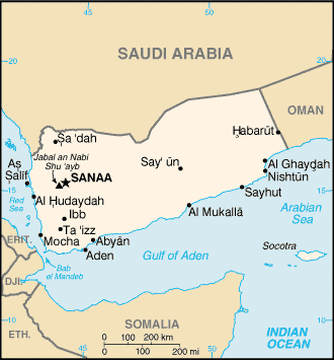
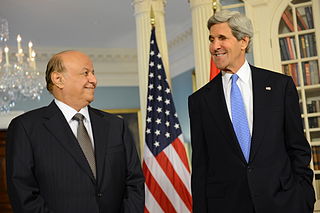
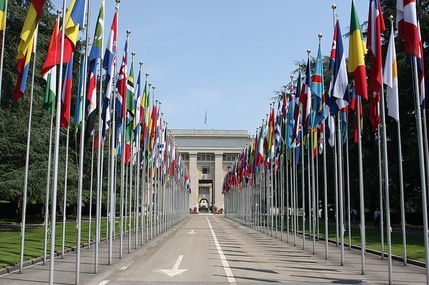
 RSS Feed
RSS Feed

